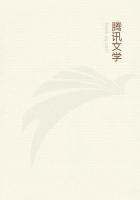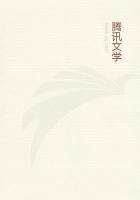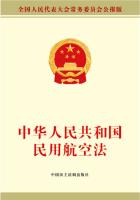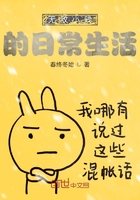Trefusis looked at it as if he had never seen such a thing before and did not quite know what to make of it. "All these scratches seem to me to have no meaning," he said dubiously.
Sir Charles stole a contemptuous smile and significant glance at Erskine. He, seized already with an instinctive antipathy to Trefusis, said emphatically:
"There is not one of those scratches that has not a meaning.""That one, for instance, like the limb of a daddy-long-legs. What does that mean?"Erskine hesitated a moment; recovered himself; and said:
"Obviously enough--to me at least--it indicates the marking of the roadway.""Not a bit of it," said Trefusis. "There never was such a mark as that on a road. It may be a very bad attempt at a briar, but briars don't straggle into the middle of roads frequented as that one seems to be--judging by those overdone ruts." He put the etching away, showing no disposition to look further into the portfolio, and remarked, "The only art that interests me is photography."Erskine and Sir Charles again exchanged glances, and the former said:
"Photography is not an art in the sense in which I understand the term. It is a process.""And a much less troublesome and more perfect process than that,"said Trefusis, pointing to the etching. "The artists are sticking to the old barbarous, difficult, and imperfect processes of etching and portrait painting merely to keep up the value of their monopoly of the required skill. They have left the new, more complexly organized, and more perfect, yet ****** and beautiful method of photography in the hands of tradesmen, sneering at it publicly and resorting to its aid surreptitiously.
The result is that the tradesmen are becoming better artists than they, and naturally so; for where, as in photography, the drawing counts for nothing, the thought and judgment count for everything; whereas in the etching and daubing processes, where great manual skill is needed to produce anything that the eye can endure, the execution counts for more than the thought, and if a fellow only fit to carry bricks up a ladder or the like has ambition and perseverance enough to train his hand and push into the van, you cannot afford to put him back into his proper place, because thoroughly trained hands are so scarce. Consider the proof of this that you have in literature. Our books are manually the work of printers and papermakers; you may cut an author's hand off and he is as good an author as before. What is the result? There is more imagination in any number of a penny journal than in half-a-dozen of the Royal Academy rooms in the season. No author can live by his work and be as empty-headed as an average successful painter. Again, consider our implements of music--our pianofortes, for example. Nobody but an acrobat will voluntarily spend years at such a difficult mechanical puzzle as the keyboard, and so we have to take our impressions of Beethoven's sonatas from acrobats who vie with each other in the rapidity of their prestos, or the staying power of their left wrists. Thoughtful men will not spend their lives acquiring sleight-of-hand. Invent a piano which will respond as delicately to the turning of a handle as our present ones do to the pressure of the fingers, and the acrobats will be driven back to their carpets and trapezes, because the sole faculty necessary to the executant musician will be the musical faculty, and no other will enable him to obtain a hearing."The company were somewhat overcome by this unexpected lecture.

